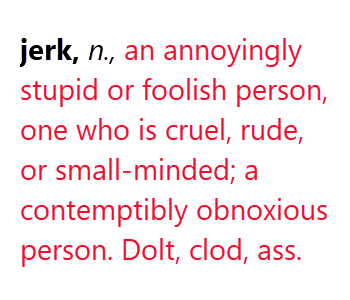In the July 16, 2019 Ask The Headhunter Newsletter a reader worries about resigning the wrong way.
Question
I finally landed my next job after months of interviews. Now I don’t want to blow it until I’m actually on board at the new company. I say that because the last time I changed jobs I made the mistake of telling my boss too soon, before I even had a job offer. I thought he respected me enough to wish me well, but it blew up in my face. He told HR and I was walked out the door. I can use some advice. How should I handle it this time?
Nick’s Reply
Congratulations — now be careful!
Before I offer my suggestions, I’ll tell you about a vice president of engineering I placed. I moved Hans from the southern Florida “spook industry” (that’s what he called it) to San Jose, California, where he was hired to run an engineering department at a company that made state-of-the art communications equipment.
Resigning & telling
A week before Hans was to move his entire family and start the new job, the president of my client company called me. “Someone left me a worrisome voicemail. They didn’t leave their name and the number is untraceable. They said Hans has affiliations we should be aware of. What’s this about, Nick?”
The tight-knit Florida “spook industry” (purveyors of electronic equipment that spies use) didn’t like that Hans was leaving their little community and taking his insider knowledge with him. They made that call to nuke Hans’s new job — and his family’s future. Never mind how I found out; that’s my job. In the end, it all worked out and Hans had a long, successful career in San Jose.
What happened? Hans made the mistake of telling someone back home where he was going. Hans knew full well how to keep his mouth shut — that was the business he was in. But Hans also had a healthy ego and he wanted to impress some of his close friends, not realizing the risk he was taking.
Risking getting nuked
When I discussed this with him later — he was incredibly embarrassed at his own behavior — I explained risk to this seasoned executive.
“The risk that someone you told would hurt you was probably very small, so you overlooked it. The trouble is, even the tiniest risk is not worth taking when the potential consequences could be catastrophic. The tourist who climbs over the railing at the Grand Canyon to take a selfie knows the chances they’ll fall into the abyss are tiny. But the consequences are enormous. So it’s not prudent to take that risk.”
That’s why, when you plot your exit from one employer to another, you should never, ever disclose to anyone — least of all your boss and co-workers — what you’re about to do and where you’re going.
Don’t jump the gun
Ask yourself, who needs to know and what do they need to know? Your employer needs to know you’re leaving, but only when it’s safe for you to tell them. No one needs to know where you’re going — that’s private and confidential. And you can tell them later, when it’s safe.
The following is from my PDF book, Parting Company: How to leave your job. It’s just a short excerpt of the chapter, “Resign Yourself To Resigning Right,” pp. 42-43:
Unless you have a rare boss who is more concerned about your future than about his own or the company’s, don’t do it. Regard any discussion about your potential resignation as tantamount to tendering it. Once you let the cat out of the bag… it may be impossible to put it back.
Word may get out among your co-workers, and it may affect their attitude about you. Your boss may view what you’ve divulged as an indication that you’ll continue looking, even if you don’t accept the job offer. And, if you haven’t yet made a decision, all that talk may lead you to make the wrong decision.
I’m a believer in getting advice and insight about a potential job change. But, I think it’s dangerous to seek such advice from people whose own jobs and lives will be impacted by your decision. If you work in a very tight-knit organization of mature professionals who respect one another both personally and professionally, your experience might contradict what I’m suggesting. But most people don’t work in such an environment. If you need advice, get it from a trusted peer or mentor who preferably works in another company. Don’t jump the gun. Don’t disclose your intentions when it might hurt you.
Protect yourself
My advice is to give notice to your employer only after you have a bona fide offer from the new employer in writing, signed by an officer of the company, and after you have accepted the offer in writing. Your acceptance letter should include a statement to the effect that you are “advising that my acceptance of this job will require me to resign my position at [the old employer] and to relinquish my income from that job, and that I will rely on the compensation of [$X — whatever the offer is] from you.”
- Getting fired is a state of mind
- Stock option handcuffs
- Did you get downsized?
- Should I take a package to quit?
- How to handle exit interviews
- What about counter-offers?
That “statement of reliance” is recommended by an employment lawyer who advises that it might protect you legally if the offer is withdrawn. (Please see Lawrence Barty’s comments in Job offer rescinded after I quit my old job, but please understand that this is not offered as legal advice in any particular situation.)
Don’t tell anyone at your old company where you are going, even if you’re so excited you could burst. Tell them you’ll be in touch once you’re settled into your new job (preferably for at least a couple of weeks) because you value your friendships and want to stay in touch. You can decide later whether you really want to do that.
If they beg to know where you’re going, just tell them that some headhunter once cautioned you to keep it confidential — and that when the time comes, they should, too.
Has resigning ever come back to bite you? What does your employer really need to know when you resign? How risky is it to tell people where you’re going? What “parting company” tips would you offer this reader?
: :


 I can’t decide whether to change employers or try for an internal move. I haven’t had to search for a new job in over a decade. The number of “tools” being marketed is mind boggling! Job sites, coaches, intelligent agents (really?), video resumes, and my favorite, services that use “big data” to match me to the perfect job. I tried one service that sends jobs to my mobile, but it’s spam. Can you recommend a few of the very best services to try?
I can’t decide whether to change employers or try for an internal move. I haven’t had to search for a new job in over a decade. The number of “tools” being marketed is mind boggling! Job sites, coaches, intelligent agents (really?), video resumes, and my favorite, services that use “big data” to match me to the perfect job. I tried one service that sends jobs to my mobile, but it’s spam. Can you recommend a few of the very best services to try? I worked in publishing, graphic design and general computer consulting when my spine was injured severely in an automobile accident. During four years of recovery, I completed a lot of education and became proficient in web development and programming. Finally, I returned to the work world as a network and computing coordinator for a local college. I was re-injured on the job and since my sixth surgery (anterior spinal fusion) I have been unable to return to work. I would have to work from home.
I worked in publishing, graphic design and general computer consulting when my spine was injured severely in an automobile accident. During four years of recovery, I completed a lot of education and became proficient in web development and programming. Finally, I returned to the work world as a network and computing coordinator for a local college. I was re-injured on the job and since my sixth surgery (anterior spinal fusion) I have been unable to return to work. I would have to work from home.

 25 hungry cats
25 hungry cats After I accepted a new job at a better company, my employer brought me in for a high-level meeting with management and made a counter-offer to get me to stay. I politely turned them down, even though the money was higher, because as I said, the new company is a better place to work. As a manager myself, I’ve never made a counter-offer to a departing employee. My view is, if they want to go, they should go. Am I wrong?
After I accepted a new job at a better company, my employer brought me in for a high-level meeting with management and made a counter-offer to get me to stay. I politely turned them down, even though the money was higher, because as I said, the new company is a better place to work. As a manager myself, I’ve never made a counter-offer to a departing employee. My view is, if they want to go, they should go. Am I wrong?
 I joined my company six years ago mainly because every manager and employee I met impressed me. For the first couple of years, we were wildly successful. I’m convinced it was because of the people. As a manager, I am careful to hire only people who match that caliber. But things changed. A mediocre vice president was hired who brought in two managers who were not technically competent. They in turn hired weak staff. Customers started complaining.
I joined my company six years ago mainly because every manager and employee I met impressed me. For the first couple of years, we were wildly successful. I’m convinced it was because of the people. As a manager, I am careful to hire only people who match that caliber. But things changed. A mediocre vice president was hired who brought in two managers who were not technically competent. They in turn hired weak staff. Customers started complaining. Question
Question My friends and I are successful IT (information technology) types and receive calls about positions from headhunters often. We are all experiencing the following:
My friends and I are successful IT (information technology) types and receive calls about positions from headhunters often. We are all experiencing the following: